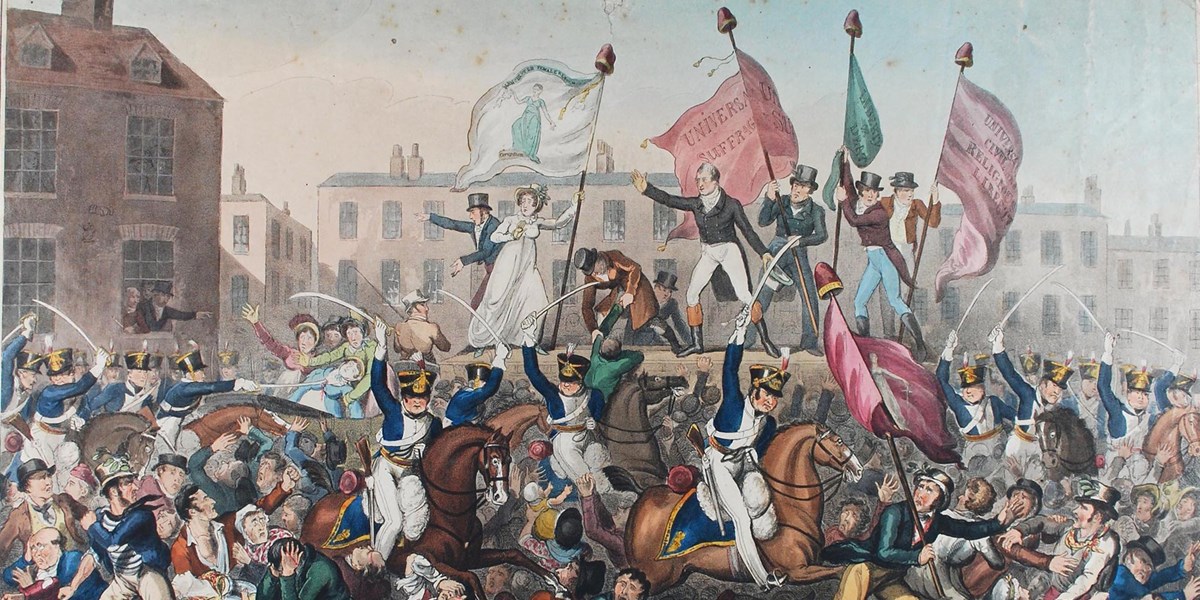Wednesday, October 16, 2024
Eliza Carthy on the Peterloo Massacre
Eliza looks at the heartbreaking scenes and songs that emerged from the Peterloo Massacre and wonders if any parallels will be found from recent UK riots and looting

Peterloo Massacre, print published by Richard Carlile, 1 Oct 1819

Register now to continue reading

Thanks for visiting the Songlines website, your guide to an extraordinary world of music and culture. Sign up for a free account now to enjoy:
- Free access to 2 subscriber-only articles and album reviews every month
- Unlimited access to our news and awards pages
- Our regular email newsletters

